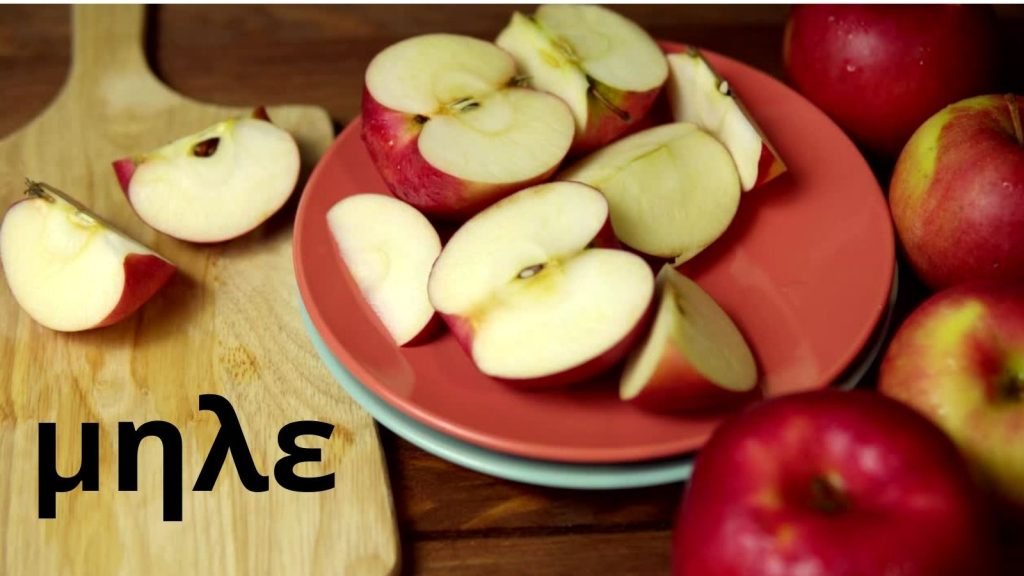When you hear the word “μηλε,” you might not immediately recognize it, but this term refers to something quite familiar to many of us: the apple. Understanding μηλε (pronounced mee-leh) gives us a glimpse into Greek culture, where this fruit holds significant historical and cultural importance. Let’s explore the multifaceted role of μηλε in Greek life, from ancient myths to modern-day culinary delights.
What is Μηλε?
Μηλε, simply put, is the Greek word for “apple.” Pronounced as “mee-leh,” this term encompasses more than just the fruit we know; it represents a rich cultural symbol embedded in Greek heritage. Apples in Greece are not just a source of nutrition but are woven into the fabric of history, tradition, and mythology.
Historical Significance
The apple has a storied past in Greek culture, dating back to ancient times. It appears in numerous Greek myths and legends, often symbolizing beauty, knowledge, and temptation. One of the most famous tales is the story of the golden apple in the myth of the Trojan War, where Eris, the goddess of discord, threw a golden apple inscribed with “To the fairest” among the goddesses, leading to a chain of events that sparked the war.
Cultural Importance
In Greek traditions and customs, apples symbolize various aspects of life, including fertility, love, and immortality. During weddings, apples are sometimes used in rituals to bless the couple with fertility and prosperity. In folklore, apples are often seen as a symbol of abundance and good fortune, reflecting their deep-rooted significance in Greek culture.
Varieties of Greek Apples
Greece is home to a diverse range of apple varieties, each with unique characteristics. Some popular types include:
- Starking Delicious: Known for its sweet taste and vibrant red color.
- Golden Delicious: A versatile apple with a crisp texture and mild flavor.
- Granny Smith: Renowned for its tartness and firm texture, often used in baking.
These varieties highlight the richness and diversity of Greek apples, each bringing its unique flavor and texture to the table.
Nutritional Benefits
Apples are renowned for their health benefits, and Greek apples are no exception. They are rich in vitamins, particularly vitamin C, and provide a good source of dietary fiber. Consuming apples can aid in digestion, boost the immune system, and even reduce the risk of chronic diseases such as heart disease and diabetes.
Uses in Greek Cuisine
In Greek cuisine, apples are used in a variety of traditional dishes. They can be found in savory recipes like apple-stuffed pork or sweet treats such as milopita (apple pie). Apples are also enjoyed fresh, providing a refreshing and healthy snack. The versatility of apples makes them a staple in Greek kitchens, both for everyday meals and festive occasions.
Apple Harvesting in Greece
Apple harvesting in Greece is a seasonal activity, typically taking place in the autumn months. Greek apple orchards use traditional and modern methods to ensure high-quality produce. Harvesting is often a community affair, with families and friends coming together to collect the ripe fruits, making it a time of celebration and bonding.
Economic Impact
Apple production is a significant contributor to the Greek economy. The country produces thousands of tons of apples annually, with a portion being exported to international markets. This industry provides livelihoods for many farmers and plays a crucial role in the agricultural sector.
Growing Conditions
The ideal climate for apple growing in Greece includes temperate regions with well-drained soil and adequate rainfall. Regions such as Thessaly and Macedonia are renowned for their apple orchards, benefiting from favorable growing conditions that produce high-quality apples.
Challenges in Apple Farming
Greek apple farmers face several challenges, including pests, diseases, and climate change. Innovations in farming techniques and sustainable practices are being adopted to combat these issues, ensuring the longevity and productivity of apple orchards.
Cultural Celebrations
Apples are celebrated in various festivals and events across Greece. These celebrations often include apple-picking activities, cooking competitions, and cultural performances, reflecting the deep connection between the community and this beloved fruit.
Apples in Greek Art and Literature
Apples have been depicted in Greek art and literature for centuries. From ancient vase paintings to modern poetry, the apple serves as a symbol of beauty, temptation, and wisdom. These artistic representations highlight the cultural significance of apples in Greek society.
Environmental Impact
Sustainable apple farming practices are crucial in preserving the environment. Greek farmers are increasingly adopting methods that reduce chemical use and promote biodiversity, ensuring that apple orchards remain a sustainable and eco-friendly source of produce.
Conclusion
Apples, or μηλε, hold a special place in Greek culture, symbolizing everything from love and fertility to wisdom and prosperity. Their historical and cultural significance, combined with their nutritional benefits and versatility in cuisine, make them a cherished fruit in Greece. Whether enjoyed fresh, in a traditional dish, or depicted in art, the apple continues to be an integral part of Greek life.
FAQs
- What does the term μηλε mean?
Μηλε is the Greek word for apple, a fruit deeply embedded in Greek culture and history. - How are apples used in Greek cuisine?
Apples are used in a variety of dishes, from savory meals like apple-stuffed pork to sweet treats such as milopita (apple pie). - What are the health benefits of eating apples?
Apples are rich in vitamins, particularly vitamin C, and dietary fiber, aiding digestion, boosting the immune system, and reducing the risk of chronic diseases. - Which regions in Greece are known for apple production?
Regions such as Thessaly and Macedonia are renowned for their apple orchards, benefiting from ideal growing conditions. - How are apples celebrated in Greek culture?
Apples are celebrated in various festivals and events, which include apple-picking activities, cooking competitions, and cultural performances.


